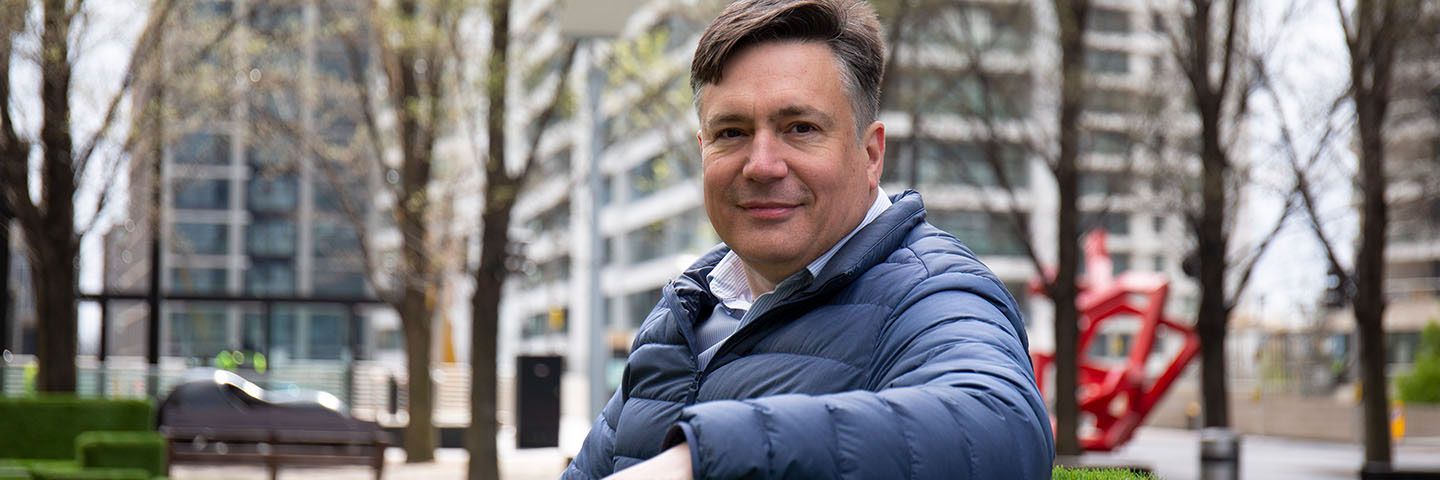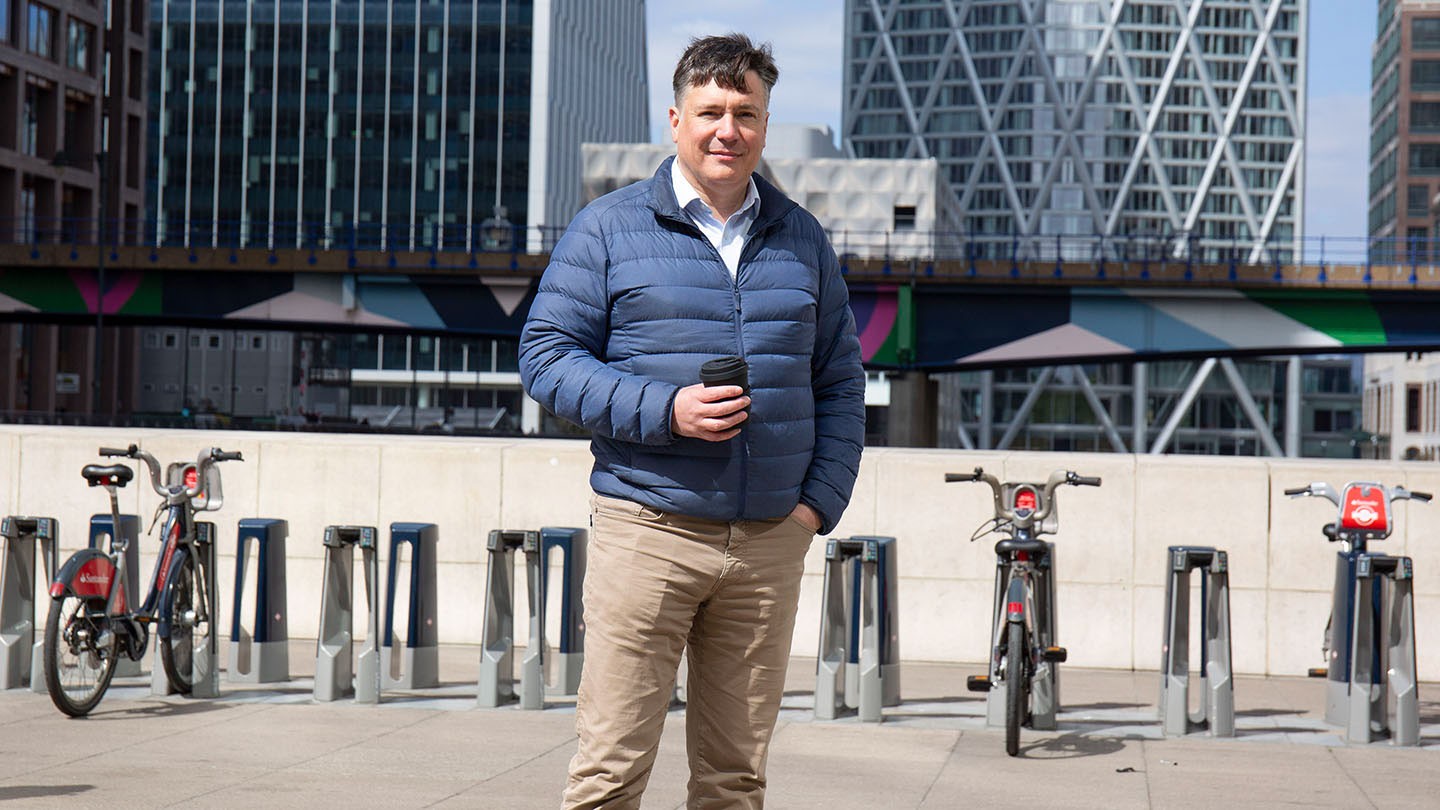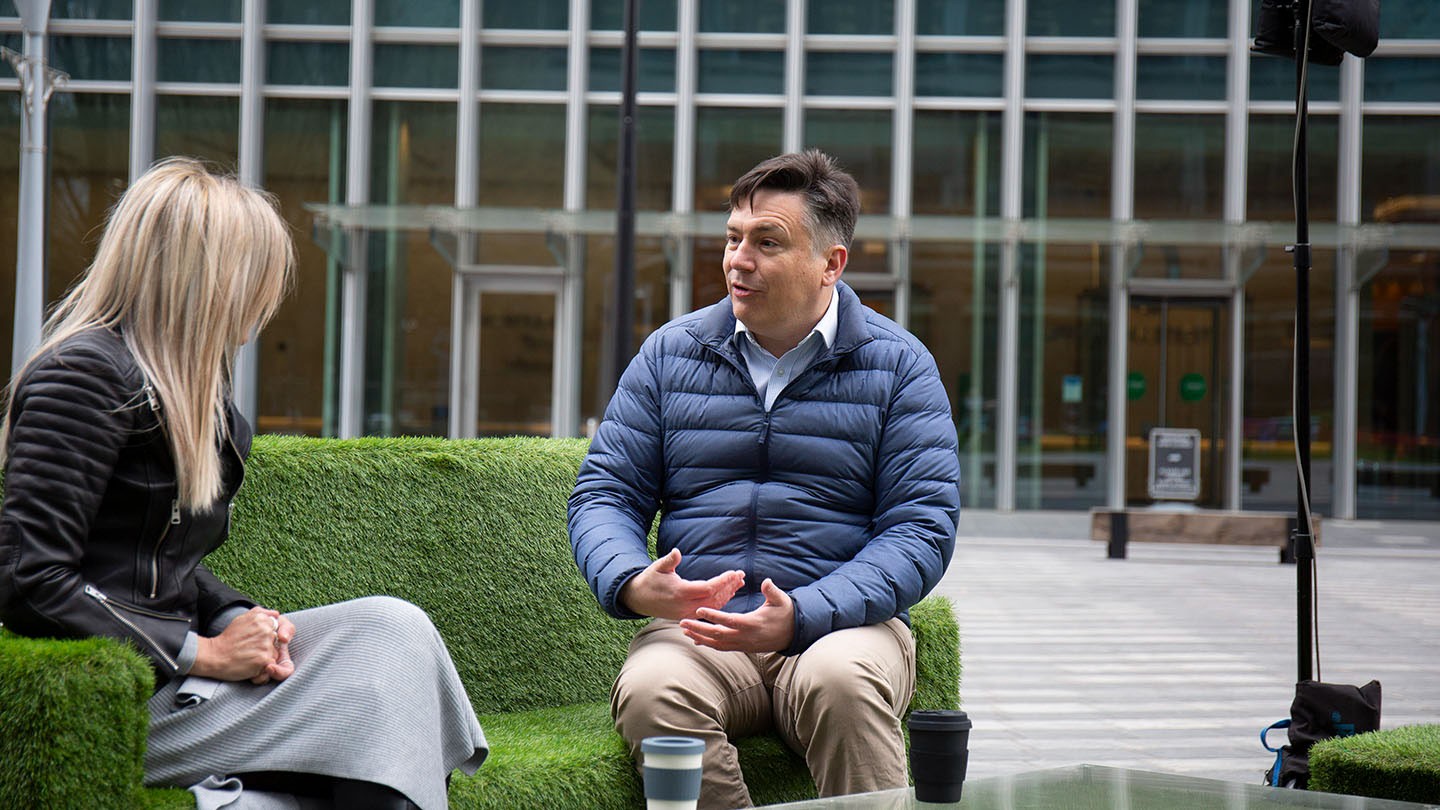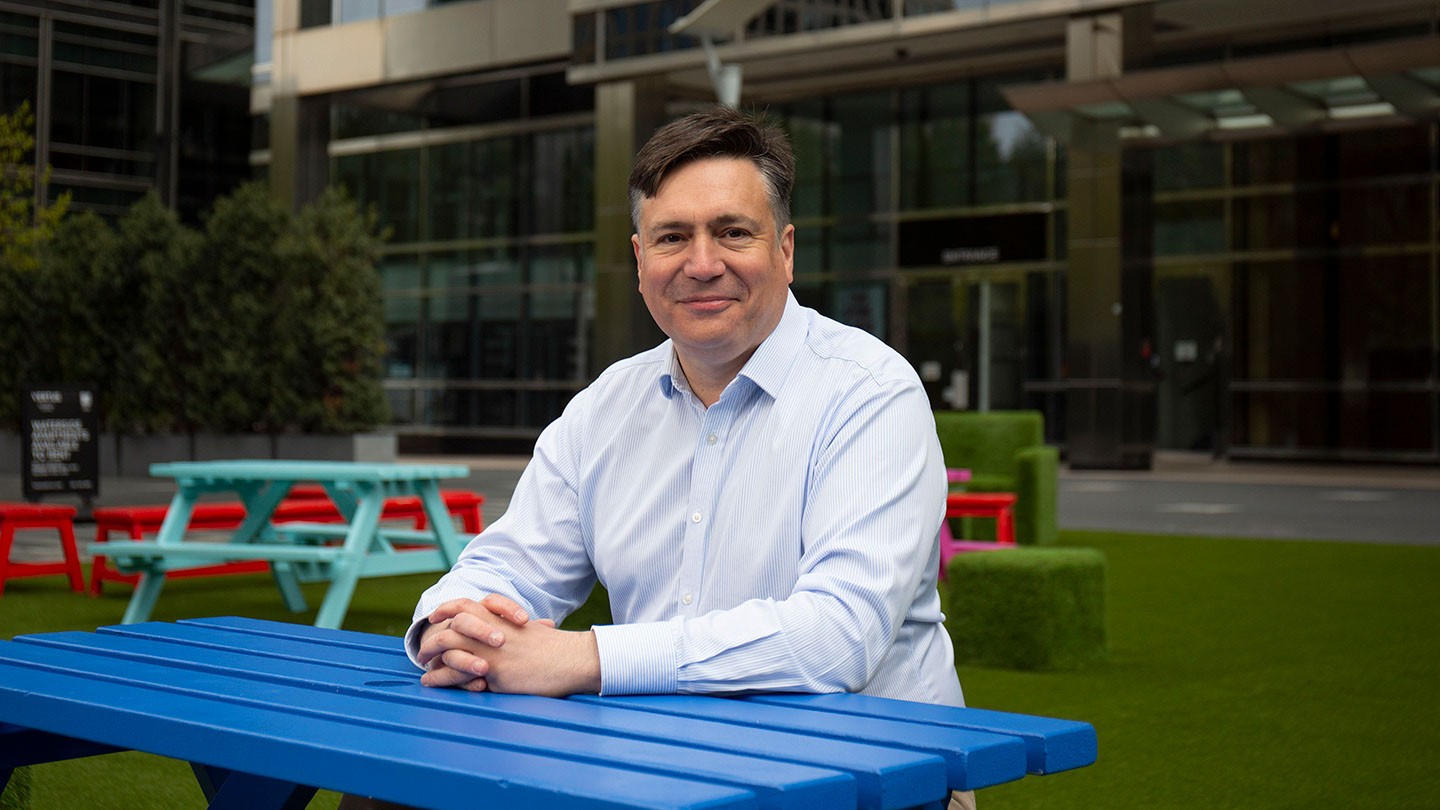
Innovation
Innovators of Barclays: Lee Braine
26 May 2021
Dr Lee Braine’s team at Barclays spends its days researching advanced technologies. The Managing Director in the bank’s Chief Technology Office explains what innovation means to him, from digital acceleration to post-pandemic ways of working.
What does innovation mean to you?
Innovation, for me, concerns the introduction of better processes, technologies and products – typically with a focus on their practical implementation. It's related to the idea of invention, with the focus on actually realising the implementation of those inventions and their business benefits.
What did innovation mean to you when you were 10 years old?
When I was 10, innovation meant toys that could do cool new things – things like speech synthesis, where I'd hear the toys speaking back to me. At that time, I also played with putting together pieces of electronics, and some of that innovation would be about following given instructions to build something.
At that age I was also really excited by science fiction – topics such as artificial intelligence and robotics, which to me were promises of what the future would give us.

Lee Braine is Managing Director at Barclays Chief Technology Office.
Wouldn't it be great to be able to work on things that can change the world?
Managing Director, Barclays Chief Technology Office
What are your favourite and least favourite innovations?
It’s hard to argue that antibiotics weren’t one of the most important discoveries in history. If I were to move into the computing space, I would highlight the invention of the PC and what flowed from that. I’d also look at communication: this goes for everything from the radio, through to the television, to the internet of today. There are some key innovations that start to transform an industry that are then built on by others.
Looking at my least favourite innovations, I would probably say cigarettes. Their impact on people’s health is undisputed.
Which innovators do you look up to?
First of all, Steve Jobs. He wasn't just a visionary in introducing new products and ideas, but also delivering them to market and getting adoption across the industry. We as consumers and businesses have been transformed by his visions being deployed across the marketplace.
Reaching further into the past, I look up to the Wright brothers – their methodology, their application of science and the experimental techniques that helped them to produce an aeroplane that flies.

Lee Braine’s favourite innovations and discoveries include antibiotics and the PC.
What do you think inspires people to innovate?
There are many things you can do in life, and you have a choice. Wouldn't it be great to be able to work on things that can change the world? To do things that people haven't done before? That may include inventing – or it may be taking an already existing invention and working out how to get people to use it.
How do you foster a culture of innovation at Barclays?
Innovation is introduced through a variety of avenues, including, for example, our Rise innovation hubs based in London and New York. The process of introducing ideas starts with the origination of an idea, which is then assessed, sometimes through pilots. What results from all of this is a new product or service that’s been tested not only for its innovation but also its applicability and acceptability to potential consumers. The end result is the controlled delivery of innovation in a highly regulated environment.
If we consider Barclays, we can look back to the invention of the ATM, and forward to further digitalisation of financial services. We can see how important their implementation has been, not just to Barclays, but to all our clients and society as a whole. It’s also key to think about ways of working, encouraging innovation within product areas – and rewarding that innovation.
I think it's important for the culture of innovation to start from the top, with senior executives emphasising the importance of innovation both throughout history and for the future of the business.
I think it's important for the culture of innovation to start from the top.
Managing Director, Barclays Chief Technology Office

Lee Braine says a culture of innovation should start from the top at an organisation.
What do you think the impact of COVID-19 has been on innovation?
Digitalisation has been occurring for decades as we transfer from paper to electronic forms and beyond. During the COVID-19 period, it's been necessary for industries to accelerate the pace of that transformation.
COVID-19 has also impacted our ways of working, as we all know. People have been at home much of the time. That change in your routine – what do I do when I wake up, where do I spend my days? – has changed as a result. It’s expected some of that will carry over to future ways of working.
What are the most exciting areas of technological innovation right now?
One very exciting area is blockchain. There was a lot of hype a few years ago when some people looked at this technology and said it may solve most problems with legacy IT. The reality is more subtle – but it's a good technology to deploy in certain circumstances. Here at Barclays, we’re focusing on the cases where it's able to deploy great benefit in the near, medium and long term.
Another area is artificial intelligence – in particular, machine learning. Barclays has a number of teams that are working on machine learning, with algorithms running in production, and often aiming to incrementally improve the effectiveness of the algorithms over time using advanced models and techniques. It's really great to be working on these topics.